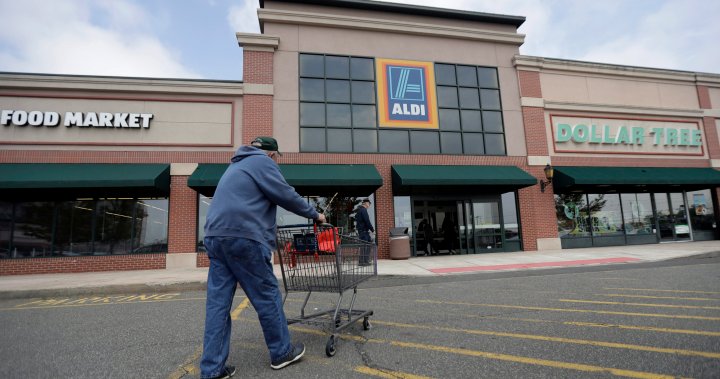OTTAWA—Canada's industry minister is weighing a list of a dozen foreign grocery companies—from the U.S., Germany, Turkey and Portugal, among others—to potentially lure to the country in a bid to increase competition in the domestic food-retailing sector.
One of the companies said it would take a pass.
Since the fall, Industry Minister François-Philippe Champagne has criticized Canada's three biggest grocery companies—Loblaw, Metro and Empire—for failing to be transparent on the causes of food inflation, and told the antitrust watchdog he expected the agency to "confront abuses" in the domestic marketplace. At one point, Champagne and other officials spoke of a windfall tax on grocery-chain profits unless prices for grocery staples stabilized.
This has come against a backdrop where Canadian voters tell pollsters they are frustrated with cost-of-living matters, and the incumbent Liberal government finds itself trailing its rival, the Conservatives, by a wide margin in most public-opinion surveys.
"A lack of competition in Canada's grocery sector means Canadians are paying higher prices," according to a passage in the federal government's annual budget plan, released this week. The latest inflation data indicate that, since just prior to the pandemic, food prices are about 23% higher.
Champagne has also discussed attracting foreign grocers to Canada. In late February, a top official at the industry department provided a list of a dozen foreign retailers that Champagne could target.
A memo lining up potential candidates was obtained via a request under Canada's access-to-information law. European grocers dominate the list, with a lone entry from the U.S.: Grocery Outlet Holding, a California-based discount food retailer with about 470 stores in nine states.
Two of the most recognizable names on the list are both based in Germany: Aldi, which has more than 2,000 outlets in the U.S., and Lidl, another discounter with American stores and owned by the Schwarz Group.
A spokeswoman for Champagne didn't immediately respond to questions, such as how many executives from the dozen listed grocers the minister had spoken with and whether any of the companies had expressed interest in the Canadian market.
Layla Kasha, a senior vice president at Emeryville, Calif.-based Grocery Outlet, said the company had no plans to expand into Canada.
Representatives for Aldi and Schwarz Group weren't immediately available for comment.
In a report last year, Canada's Competition Bureau, which is in charge of antitrust enforcement, said the grocery sector was concentrated and dominated by Loblaw, Metro and Empire. "Canada needs solutions to help bring grocery prices in check. More competition is a key part of the answer," the report said. It pointed to what transpired in Australia after Germany's Aldi chain entered, which forced domestic operators to significantly reduce prices.
"The successful entry of international grocers into the Canadian industry may be the best option to bring about lower prices, greater choice, and increased levels of innovation," the bureau said.
A spokeswoman for Montreal-based Metro, which operates 980 grocery stores, said food-retailing is a competitive sector, noting that U.S.-based Walmart and Costco Wholesale are already in Canada, and the company would welcome further competition from abroad. Spokespeople for Loblaw and Empire didn't respond to a request for comment.
Besides Grocery Outlet, Aldi and Lidl-owner Schwarz Group, other companies listed as possible Canadian entrants include Germany's Edeka Group and Rewe Group; France-based Les Mousquetaires; Portugal's Jerónimo Martins, operator of the Pingo Doce chain; Spain-based Distribuidora Internacional de Alimentación, also known as Dia, and Mercadona; from Norway, Reitangruppen, which operates stores under the Rema 1000 banner; Amsterdam-based X5 Retail Group, a food retailer with stores in Russia; and Turkey's BIM Birlesik Magazalar, which operates under the BIM banner.





